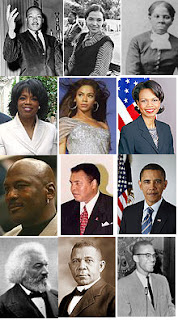Sharlotte Hydorn, the San Diego County woman who sells so-called suicide kits out of her home, describes a federal raid on her home earlier this week and explains that she just wants to give terminally ill patients the chance to die at home peacefully.
“You can embarrass me and say that I’m murderous and I’m making suicide kits and I’m killing people,” Hydron said Thursday from the yard of her home in unincorporated El Cajon. “Good luck to you in your last days, honey.”
On Wednesday, federal agents served this search warrant at Hydorn's home and seized materials used to make so-called suicide kits that she began marketing in 2002.
The 91-year old widow said agents with guns served a warrant Wednesday and searched the home for evidence in the investigation of mail fraud, wire fraud, tax evasion, the sale of adulterated material and mis-branded medical devices.
Agents took several computers, letters and other paperwork and a special sewing machine Hydorn said.
Activists have long argued about a person's right to take his or her life, and what exactly it means to assist. In the late 1990s, Michigan doctor Jack Kevorkian brought the debate into American homes by airing his assist of a suicide on "60 Minutes." Now that debate, and its ethical implications, is being rekindled by the increasing use of helium hood kits.
"Until recently nobody would have thought, 'Gosh, we have to define the word assisting,' because it was just kind of, like, duh," said Rita Marker, executive director of Patients Rights Council. "But now someone says, what does assisting really mean?"
In 1994, Oregon became the first state to enact a law that lets terminally ill people end their lives with a physician's assistance, with voters approving the policy twice. Physician-assisted suicide is also legal in Washington and Montana. Oregon law mandates multiple doctor consultations and looks at possible psychological evaluation before such a suicide can happen. The state says 65 Oregonians took their lives under the law in 2010.
Neighbors and friends, however, said she is not motivated by money. They noted she was driven to start the business following her husband’s protracted battle with cancer, before his death in the 1970s.
Jim Christensen, who lives next door to Hydorn, said he believes she sells the kits out of compassion.
He saw the FBI raid as overstepping. “To me, it’s not the government’s business to poke its nose into this issue … It should be up to the individual how they die and the way they go out.”
He and others in the neighborhood, set in a hilly, unincorporated area of El Cajon, near Fuerte Elementary School, said they only learned the full scope of Hydorn’s business in recent weeks.
“She just seemed like a nice lady who was enjoying retirement,” said resident Frank Obregón.
The kit is promoted online and sold under the name of Hydorn’s company, The Gladd Group. Orders are handled through a Rancho San Diego business address.
Derek Humphry, who wrote the book “Final Exit,” a how-to guide for the terminally ill, recently said he believes Hydorn is the only person in nation who sells such a kit.
Medical ethicists and others say Hydorn has no way of knowing if her customers are terminally ill. Many may suffer from depression and need a therapist.
Two weeks ago, Hydorn told the San Diego Union-Tribune in an interview that she is not 'a death merchant,' claiming that the bags are solely meant to be used by terminally ill people.
“I’m not killing people. This is my chance to try to help them,” she said.
Earlier this month, the state Senate in Oregon voted to crack down on companies selling plastic hoods or other items that could aid in suicide.
State Sen. Floyd Prozanski (D-Eugene) sponsored the legislation after reading about the suicide of Nick Klonoski, whose mother and father are both U.S. district court judges. Klonoski killed himself more than four months ago using one of Hydorn’s kits, which he bought online. Klonoski’s family said at a Senate hearing last month that he was not terminally ill.







